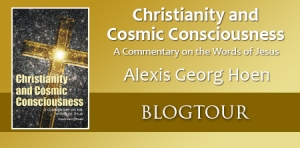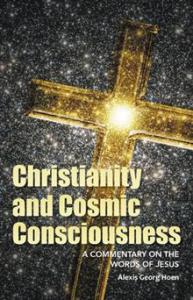Title: Christianity and Cosmic Consciousness
Author: Alexis Georg Hoen
Publisher: iUniverse
Genre: Religion
Format: Ebook
Born in the Ukraine, educated in Munich, and having practiced medicine in the United States, author Alexis Georg Hoen has been exposed to widely differing political systems and religious beliefs, and he has always maintained an interest as to the origin of these beliefs and their relation to the innermost nature of man. In Christianity and Cosmic Consciousness, he interprets the words and the sacrifice of Jesus as pointing the way toward a realization of our innermost nature—the will to live and love that exists within all. Sharing his experiences and ideas about Christ’s words and sacrifice, Hoen uses personal anecdotes and biblical examples to illustrate the nature of Christian belief. He provides a host of examples, including key illustrations from the Bible and relevant source material from other writers who address this topic. He shows us that through sacrifice we live in and for others. That is eternal life. Christianity and Cosmic Consciousness represents the core of Christian teaching without resorting to the supernatural and miraculous, yet doesn’t try to disprove it.
The gist of this article is taken from my book Christianity and Cosmic Consciousness," more precisely from the chapter about the last words of Jesus spoken from the Cross: "Into your hands I commend my spirit." I took that opportunity to say that while we form our moral and governmental laws we serve our innermost divine nature and thus always commend our spirit into the hands of God. With this opinion I join Mahatma Gandhi who says that those who say that religion has nothing to do with politics do not understand what religion is all about. I do not believe he refers to the separation of organized religion from the state which is highly desirable. Yet even the basic thoughts used in the foundation of this country, where separation of church and state was ordained from the very beginning, have a religious background as evidenced by the words in the Declaration of Independence: "...we hold these truth to be self-evident, that all men are created equal and endowed by their Creator with certain inalienable rights..." To my knowledge, the idea of equality first emerged as a political principle during the French Revolution. It was a revolt against the evils of a feudalist society, founded on the belief that the one' s worth is not determined by the class into which one was born. It is a religious principle in a wider sense for it is founded on the spiritual worth of a person aside from any pragmatic considerations. Its roots are buried deep in the Christian tradition going back to Jesus's teachings and to those of St. Paul who says: There is neither Jew nor Greek, there is neither slave nor free person, there is not male and female, for you are all one in Christ Jesus." (Gal 3:28). Still, in the ensuing centuries the principle has been ignored, and even now discrimination based on origin is there as a not so silent undercurrent, and even the very signers of our Declaration of Independence tolerated slavery because blacks were allegedly born inferior to whites. Such was, and still is, the blatant disregard for a valid belief. But the principle of equality, understood simply as equality of worth, has also been misinterpreted as denoting absolute equality by totalitarian governments, for example during the Cultural Revolution in China and the Pol Pot regime in Cambodia. As the failure of those experiments clearly demonstrates, if simple observation is not enough, people are not created equal but differ widely in terms of physical and mental ability, health and social opportunity. But along with this inequality we aiL including other living creatures and even inanimate formations in nature, share an identity of two kinds. The first is our common innermost nature, the divine creative principle of Being, manifested in all of us as the will to live and to support life in general. The second form of identity is derived from the first and again is the either conscious or unconscious desire to live in the most comfortable and agreeable way, to fulfill our desires and apply our abilities. The full realization of this identity should force us to create a society of mutual support, to help others to overcome the inequalities with which we are created, and to respect and support our natural environment. Such should be the true basis of any society with its laws and civil rights possessed by its members. In this effort we are hindered by an original fault that is unavoidable because Being and creative advance of which we are representatives can only be manifested by individual particular beings, necessarily in some respects opposed to each other. While being a part, I am apart. I cannot survive without fighting the hosts of bacteria trying to invade my body, without destroying living things in order to eat, and sooner or later my interests are going to conflict with those of someone else. It is the task of moral and legal principles to minimize that dilemma. That task is based on our identity, not on our equality. These considerations show a shortcoming in the concept of equality versus that of identity. Equality denotes independent beings placed beside each other without any obligation of mutual support. The Declaration of Human Rights by the United Nations mentions the right for support by others but such a statement is conspicuously absent from our Bill of Rights. I should add that the Human Rights concept deserves our whole hearted support but that the term really denotes Civil Rights based on Human Needs. The right to life, liberty and pursuit of happiness, so eloquently stated by our Declaration of Independence, are certainly not inalienable. We sanction killing in wars and by the still widely popular capital punishment, and we limit liberty and the pursuit of happiness whenever these interfere with the proper functioning of our society. Everyone wants to live and no one pursuits misery. To serve these needs, civil rights are created, and they should be supported under whichever name they may be installed.


No comments:
Post a Comment